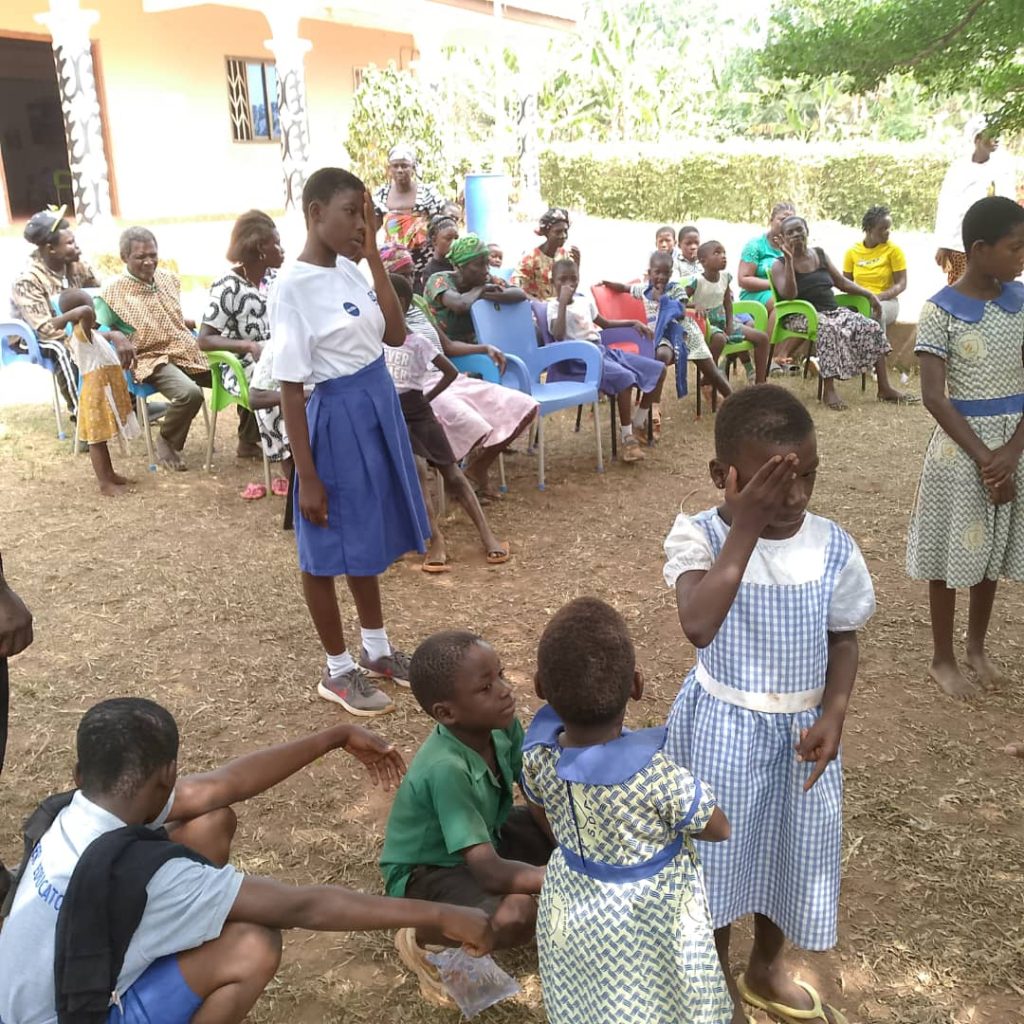By Samuel Yaokumah
Timber-Nkwanta (E/R) Dec. 29, GNA – The Holistic Development of Visually Impaired Children (HODVIC), initiated by Vision International, a Dutch non-profit organisation, has launched an essential eye screening programme for children and residents of Timber-Nkwanta in the Akuapem North Municipality of the Eastern Region.
This initiative is a collaborative effort with the Presbyterian Health Services in Ghana, and the Department of Children of the Ministry of Gender, Children, and Social Protection.
It aims to enhance eye health, empower children with visual impairments and support their caregivers to provide better care, as well as promote quality education and strengthen social protection in the community.
Mr. Alexander Boadu-Sefa, the Acting Director, Department of Children, said the eye was the gateway to the body that facilitated human activities, therefore, everyone should have healthy vision without suffering any eye defects.
“This is why HODVIC is promoting early detection, appropriate referrals, treatment, and care for children with visual impairments,” he said.
“Our goal is to ensure their holistic development and full participation at home, in school, and in their communities.”
He recommended that parents kept a close eye on their children as they played together, cautioning them to keep detergents, knives, sharp objects, and fuels out of their reach.
They should also instill the habit of handwashing in their children and avoid self-medication but to seek help from health facilities on any medical issue.

Ms Beatrice Hinson, a community nurse, provided the participants with thorough education on eye health, noting that many people lose their sight due to negligence and ignorance.
She said the practice where people used salt water, sugar, and other liquids to wash their eyes when they experience eye problems must be avoided as those substances could harm the nerves of the eye in the long run, even if they provided temporary relief.
Ms Hinson advised pregnant and nursing mothers to regularly attend antenatal check-ups for weight assessments to detect infections like syphilis and any eye-related diseases early, to avoid infecting their fetuses.
She warned that breast milk should not be used as an eye drop and urged lactating mothers to refrain from doing so.
“Those who use cell phones and computers for extended periods must also protect their eyes by wearing protective glasses. People should consume plenty of vegetables and fruits rich in vitamins A and C to strengthen eye health.”
In an interview with the Ghana News Agency, Ms. Mavis Akroamah, a beneficiary, expressed her gratitude for the educational aspect of the eye health programme, noting that it had informed her and changed her perspective on eye defects.
Ms. Afia Kubeh, another participant, was almost in tears as she acknowledged that her vision was becoming increasingly blurred with each passing day, and she had never expected to receive such an opportunity.
She referred to the initiative as “God sent” for less privileged individuals like herself and praised HODVIC for its generosity.
She encouraged the group to reach out to other communities, expressing her belief that many more people were facing difficulties like hers.
GNA